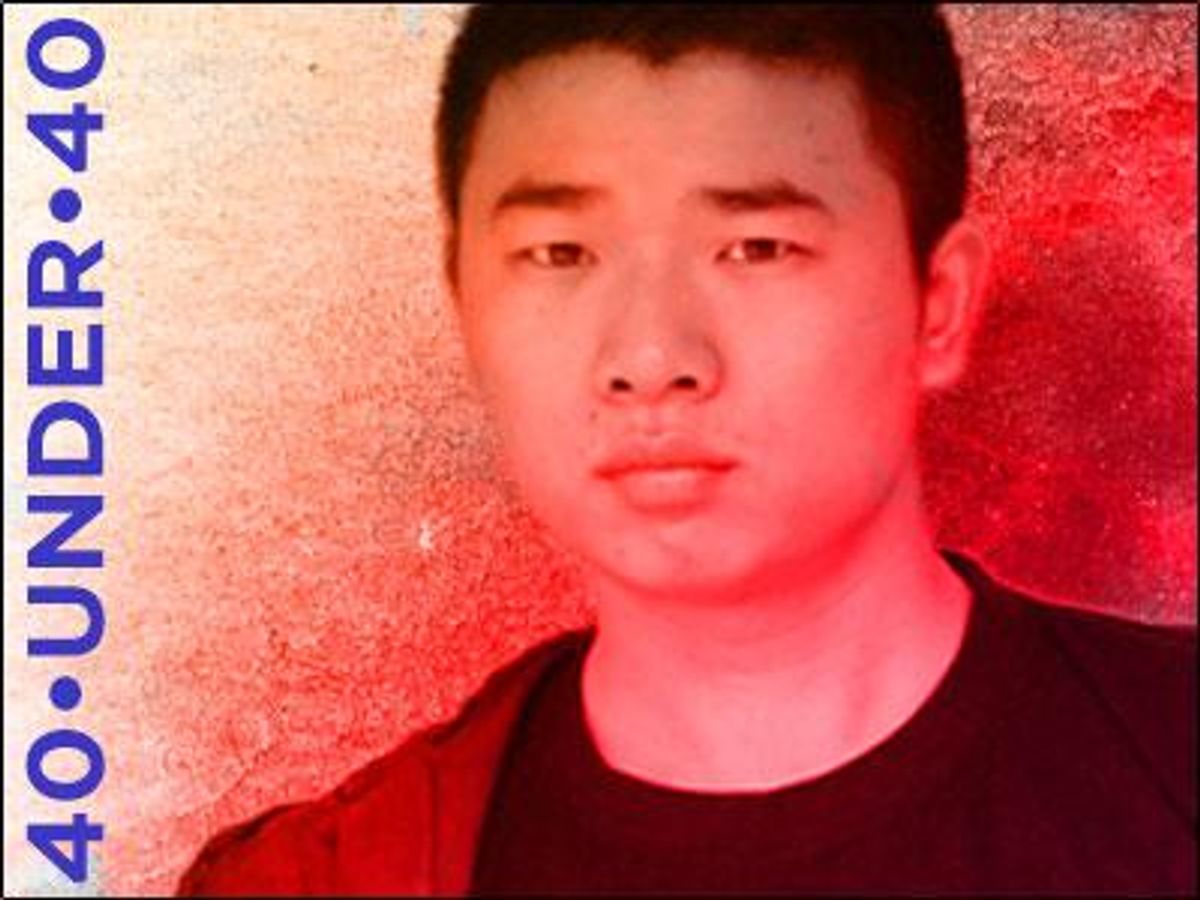In China, positive media depictions of LGBT characters are against the law, which means a film like Brokeback Mountain -- the story of a clandestine romance between two men in the American West -- would never be screened legally in the world's most populous country. The government has a complex security apparatus designed to censor any content that could be considered subversive, a term that applies to LGBT people, their leaders, and their movement for equality.
For a new generation of activists like Fan Popo who are savvy in social media and word-of-mouth rallying, the solution is to go underground. Defying ongoing censorship and other obstacles from police and government officials, activists are beginning to form a network reminiscent of the U.S. pre-Stonewall era that has succeeded in moving the needle toward acceptance within the past few years. Film and its positive depictions of LGBT characters may be at the heart of this movement.
"Film can change people's minds," says the 20-something filmmaker, who learned the art of moviemaking at the Beijing Film Academy and is also the author of Happy Together: Complete Record of 100 Queer Films, which has drawn comparisons to Vito Russo's LGBT cinema manifesto, The Celluloid Closet. To date, Fan has created several documentaries that have advocated for LGBT rights in China, including The Chinese Closet, which tells young people's stories of coming out to their parents, and Only Love, which examines the lives of transgender people in southern China.
In addition to being a filmmaker, Fan is the director of the Beijing Queer Film Festival. The festival, established in 2001, is the longest-running in China. In the last 13 years it has evolved through six editions, held screenings in countless locations, and been handled by many organizers. It has been subject to police raids, arrests, warnings, and government spies, with many attempts to permanently end this display of LGBT pride. Its venues have ranged from gay bars to foreign embassies to an ally's basement, where a white sheet served as a screen.
The festival was originally conceived by students at Peking University, who christened it the Tongzhi Film Festival. In Chinese, "tongzhi" translates to "comrade" in the Communist sense, which is how the students gained approval from the university to host the event. However, "tongzhi" is also a slang word for people who identify as LGBT, which served as an insider advertisement for its intended audience. The festival went on largely as planned but was shut down during its last day, when school officials discovered the ruse.
For several years, the festival remained dormant, due to the students' fear of more serious repercussions. After a second attempt to stage the festival at Peking University failed, organizers moved the location to 798 Art Zone, an artistic community in the Chaoyang District of Beijing that is populated with former military factories -- large buildings perfect for art galleries and, with the right equipment, movie screenings.
The festival survived at 798 for two years, at which point Fan, who was first an audience member, volunteered to become an organizer. He made an impact immediately. After police scrutiny of the festival heightened, Fan helped move the event to a rural location nearly two hours from Beijing. This remote venue helped protect the festival, since surveillance of LGBT organizations and events is greatest in urban areas. But even in this secluded place, police discovered the location in 2011, which forced Fan to once again transplant the festival back to Beijing. Throughout the years, he's learned how to "play the game of cat and mouse," staying one step ahead of authorities while orchestrating an ever-changing and underground festival that is hosted in secret venues throughout the city. As actress Lucille Ball once said, "A moving target is hard to hit."
Last year the five-day festival screened 28 films from nine countries, including Fan's documentary Mama Rainbow, which follows six mothers ("one for each color of the rainbow flag," he says) as they forge relationships with their gay and lesbian children. The moving documentary, which illustrates a growing PFLAG-style movement across China, was shown in a bus as it rolled across the streets of Beijing.
"I travel a lot," Fan says, with a gleam in his eye. "I watched a film on a flight and I had this idea, 'Oh, well, we can't rent a plane, but we can rent a bus.'"
In addition to being a moving picture show, the bus also served as a tour for initiates, stopping at various locations that have housed the festival throughout its history. The experience is an eye-opener for first-time audience members, who are accustomed to a lifetime of media censorship regarding LGBT issues. One of Fan's many duties is fundraising, and he uses part of these funds to host an annual lottery that will pay for transportation and lodging for 25 lucky winners from more rural areas of China who will then be able to travel to Beijing and experience LGBT films -- many for the first time.
And for many, the festival is about more than just film. Fan recalls meeting one former audience member who fell in love with her partner during the festival. Afterward, she was inspired to pursue a degree in gender studies at the University of Hong Kong, where she examines a cultural practice called "form" marriage, a common practice in China in which a gay man and a lesbian will marry each other in order to appease their families.
"This film festival is a home for us," she told Fan.
Read the full story of Popo Fan and the Beijing Queer Film Festival here.


















































































Here's our dream all-queer cast for 'The White Lotus' season 4